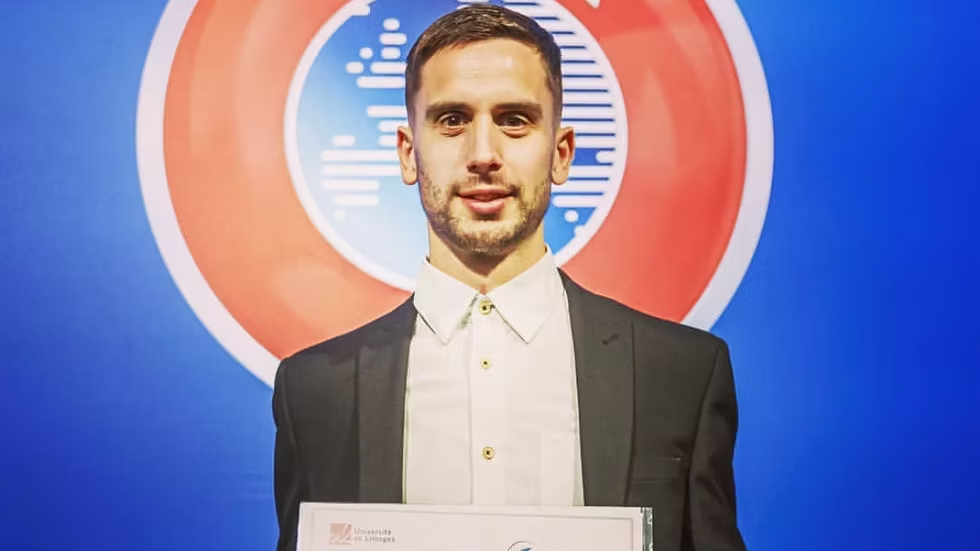
In the fast-evolving world of futsal, leadership isn’t just a quality—it’s a necessity. Few understand this better than Doug Reed, a former professional futsal player known not only for his technical ability but also for his strategic insight and enduring commitment to the sport. With years of international experience and a strong voice in futsal’s global development, Doug has established himself as a leader both on and off the court.
In this interview, Doug reflects on his playing career, shares his thoughts on leadership under pressure, and discusses how both futsal and his own journey have evolved over time.
Most kids in England grow up playing football. How did you end up choosing futsal as a career?
I played football growing up, and it was only when I went to university in Manchester that I started playing futsal. There wasn’t even a national futsal league when I first got into it in 2006. I’d always played a lot of 5-a-side and felt I was more suited to that format than the traditional 11-a-side game.
During your career, you played professionally in England and abroad, and represented the England National Futsal Team. Looking back, what would you say is your proudest achievement?
I’d say my proudest moments were my first game for England and my first professional match. I put everything into learning the game and adapting. You work so hard, but you never know if it’ll pay off. So, when it finally does, those moments become incredibly special.
You were recently awarded a Golden Cap for earning over 100 appearances for the England National Futsal Team. What did that recognition mean to you?
Since retiring, I don’t often reflect on my playing days, so this was a nice moment to look back. It reminded me of all the experiences, the people I met, and the sacrifices and challenges I overcame. It also reinforces the mindset and approach that helped me achieve my goals. That’s something I still draw on today in my current work.
You completed the MIP course in 2019, just a few years after retiring. Did it give you the foundation you needed to transition into your post-playing career?
That’s exactly why I did it. I knew I needed that knowledge base. The course covers so many essential areas: strategy, the structure of the industry, communication – all the key building blocks you need in any leadership role. Just as important is the international network it creates. Being connected with others going through similar transitions was incredibly valuable.
You’ve remained deeply involved in futsal since retiring. How important is it for you to help grow the sport in England and around the world?
I had so many amazing experiences through futsal, and I feel really fortunate. As it’s still a relatively small sport, I want to help grow it so more people can have those same opportunities. There are probably many players who aren’t quite right for football but could thrive in futsal.
You’re now working on the FIFA Women’s Futsal World Cup, after being involved in the men’s edition last year. What has that experience been like?
It’s incredibly inspiring to be part of the first-ever Women’s World Cup. It’s a historic moment. People will look back on this tournament, and I’m proud to play even a small part in it. The opportunity for female players to compete on this stage is something they’ve fought hard for, and helping provide that platform is hugely motivating.
Are you applying things from the MIP course in your current role?
Absolutely. I work in team services, dealing with 24 countries for the men’s tournament and 16 for the women’s. The communication skills and planning insights from the course have been hugely useful. Honestly, without the MIP, I don’t think I’d be doing this work at the same level.
Outside of futsal, you’ve developed a passion for gardening. How important is it to find new interests after retiring from sport?
For me, it’s all about learning and taking on new challenges. When I stopped playing, I wanted that same sense of purpose again, and I stumbled into gardening by accident. Athletes often have a strong identity tied to their sport, so retirement can be a good time to try something different and see what else brings you joy. I’ve loved football for over 30 years, but now I’ve discovered there’s more I can do.
Looking ahead 5 to 10 years, what progress would you like to see in futsal – and how do we get there?
Futsal is continuing to grow. The launch of the Women’s World Cup this year reflects broader trends in how people engage with sport. I believe it’s only a matter of time before futsal becomes a mainstream global sport. To get there, we need sustainable, well-designed projects that attract investment, because that funding is essential for growth.